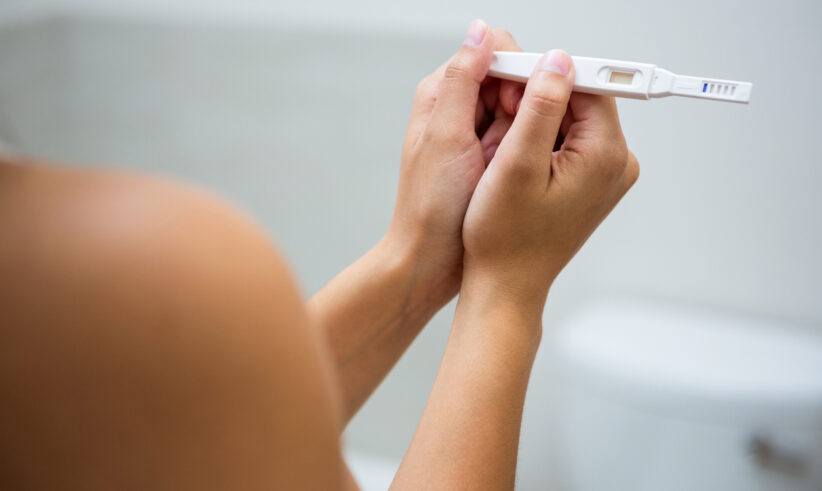October 11, 2017
By Caroline Shannon-Karasik, Romper
Somewhere between chatting about wanting to have a baby and actually trying to conceive, someone forgot to mention that much of the process is one big waiting game. You have to wait for your period to end, then patiently count the days to ovulation, and then sit tight a bit longer before you take a pregnancy test. But if you had a Magic School Bus view into your uterus — damn, that show was cool — then what would the clock look like on the actual meeting of the sperm and egg. I mean, how long does conception take? Experts say the process is quite literally down to a science.
“Within 18 to 24 hours after the meeting of egg and sperm, the fertilization occurs and an embryo is created in the fallopian tube,” Dr. Aaron Styer, OB-GYN and reproductive endocrinologist with Colorado Center for Reproductive Medicine in Boston, tells Romper in an email interview. “At this moment, the genetic material of female (egg) and male (sperm) begin to direct to the development of the embryo. Approximately five to seven days after fertilization, the embryo leaves the fallopian tube and enters the uterus where it implants and begins to grow.”
Dr. Jaime Knopman, co-founder of TrulyMD, and director at New York’s Colorado Center for Reproductive Medicine, explains to Romper that an egg is released approximately 36 hours after the start of the LH surge and lives for 12 to 24 hours after. “On the flip side, sperm has much more longevity,” Knopman says. “Sperm can live for between three to five days within the reproductive tract.” Knopman explains that once an embryo is formed, it will undergo many divisions and go from a couple of cells to thousands of cells over the next five days. “By the time the embryo is a blastocyst (approximately 500 cells), it will be ready to implant into the endometrial cavity.”
Science — wicked cool, right? Anyway, while all of that was happening inside of your body, you were probably doing some more — you guessed it — waiting and wondering when you can take a pregnancy test. Experts say the magic number for when you can take a pregnancy test is between 10 and 14 days after conception sex, assuming you’re having sex on an ovulation day. “A standard home urine test is accurate 14 days post ovulation,” Dr. Sheeva Talebian, co-founder of Truly-MD.com and director of third party reproduction at the New York branch of The Colorado Center for Reproductive Medicine tells Romper in an email interview. “Some are more sensitive and can be used as early as 10 days post ovulation.”
Just be sure to take the test first thing in the morning to ensure the most accurate results, Dr. Janet Choi, a reproductive endocrinologist and the medical director with the Colorado Center for Reproductive Medicine in New York, tells Romper. “Particularly if you’re testing very early on (i.e. exactly 14 days after ovulation), then you will want to make sure there’s enough urine containing enough pregnancy hormone (hCG) to turn the test strip positive,” she tells Romper in an email interview, adding that the early hours of the day will produce the most concentrated urine and not the more diluted stuff that results from liquids consumed throughout the day.
Of course, when you do find out that you’re pregnant, the waiting doesn’t stop there. You’ll eagerly anticipate the first heartbeat, ultrasound, and tiny baby kicks, and you’ll definitely be on the lookout for that first contraction. But the thing you’re most patiently awaiting? That sweet first glimpse at your little one’s face.
And that makes all the waiting pretty freaking worth it.



